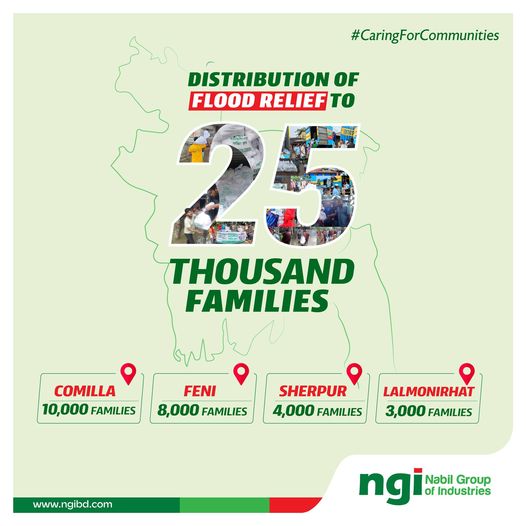In terms of climate change, Bangladesh is among the countries most susceptible to its effects. As a result of its low-lying coastal topography and densely populated delta, it is extremely vulnerable to natural disasters such as earthquakes, floods, and cyclones, the majority of which are caused by the acts of humans. The marginalized populations, whether they are located in urban or rural locations, are the ones who face the most impact as a result of these calamities. People in coastal regions, for example, have been living their lives inside a vicious cycle of losing and rehabilitating and then losing everything all over again. This pattern has been passed down from generation to generation. Not only does this loss exceed the economic damage, but it also encompasses non-economic components, which, in the majority of instances, are incurable. The situation brought on by climate change is not fair to any gender. Its effects have a disproportionately negative impact on the lives and livelihoods of women and girls, which in turn magnifies gender inequality on a worldwide scale.
According to research conducted by the Centre for Policy Dialogue (CPD), the latest floods that occurred in eastern Bangladesh caused damage that was assessed to be worth approximately Tk 14,421.46 crore, which is equivalent to approximately $1.20 billion. The largest monetary losses were sustained by Noakhali, which accounted for 29.07 percent of the entire damage. Cumilla, Feni, and Chattogram came in second, third, and fourth, respectively, with 23.51 percent, 18.61 percent, and 11.63 percent of the total damage. Along with economic damage, the Ministry of Bangladesh reported that over 190,000 individuals were relocated to emergency relief shelters, while 11 of the nation’s 64 districts experienced floods. At least 13 individuals have perished and 4.5 million have been impacted by floods caused by intense rainfall in eastern Bangladesh.
To assume the need to help the vulnerable people, Nabil Group of Industries
the nation’s preeminent agricultural enterprise, supports 25,000 households impacted by the recent catastrophic floods. The organization is providing relief aid to 25,000 families devastated by floods in the districts of Comilla, Feni, Sherpur, and Lalmonirhat. Since the onset of the flood, Nabil Group employees have promptly delivered relief aid to the impacted districts. The group has reached 10,000 families in Comilla, 8,000 in Feni, 4,000 in Sherpur, and 3,000 in Lalmonirhat.
Humanitarian work has numerous benefits for the flood-affected area. Those are
- Immediate Relief: Floods can displace numerous individuals, resulting in urgent requirements for sustenance, potable water, shelter, and medical assistance. Humanitarian initiatives rapidly deliver these vital materials.
- Health Protection: Floods may result in the proliferation of waterborne diseases. Humanitarian groups alleviate health hazards by supplying sanitation, potable water, and medical services.
- Psychosocial Support: The emotional impact of floods can be profound. Humanitarian efforts frequently encompass mental health assistance, aiding persons in managing trauma and bereavement.
- Community Resilience: Humanitarian initiatives can strengthen communities by engaging them in recovery procedures. This cultivates resistance to future calamities and promotes a sense of unity.
- Restoration of Livelihoods: Following the fulfillment of immediate needs, humanitarian efforts concentrate on revitalizing livelihoods by offering assistance for agriculture, small enterprises, and other economic activities impacted by the flood.
Nabil group significantly helps the affected people of that region. It is a part of Nabil group’s wide variety of initiatives that are intended to promote the quality of life in the community and the surrounding environment, as well as to improve the image of an organization and the degree to which employees participate in the work of the organization. The community-oriented projects were established by the Nabil group with the objective of developing a Bangladesh that is socially equitable, environmentally sustainable, and economically progressive. Rather than only focusing on meeting the needs of the present moment, the purpose is to bring about long-term changes in the lives of persons who are disadvantaged.
The group has also collaborated with partners and corporations sharing similar aspirations and ideals, thereby impacting the lives of thousands of poor individuals. Their Corporate Social Responsibilities efforts include allowances for impoverished students, complimentary healthcare screenings, food aid, providing free clothing during winter, planting trees initiatives, and help for catastrophe victims. In addition, the Anowara-Zahan Box Foundation, supported by the group, operates a madrasah, an institution for orphans, and vocational institutes.
So, Nabil Group’s proactive role in corporate social responsibility projects
Concentrating on health humanitarian work, is significantly good for society. The work of humanitarian organizations protects the rights and dignity of people who are impacted by floods and makes certain that these people, regardless of their background, are provided with the assistance they require. Nabil group did that successfully with empowering vulnerable people through their initiatives. Nabil Group seeks to harmonize its commercial success with a dedication to social responsibility. Therefore, Nabil Group, as a socially responsible enterprise, is dedicated to sustainability, which consistently refines and enhances its operations to foster a better tomorrow.


